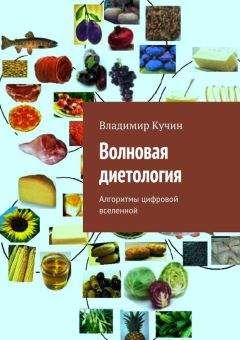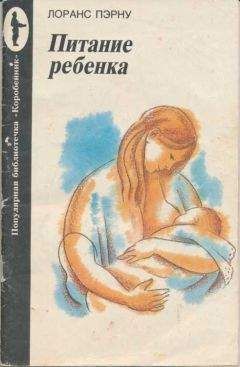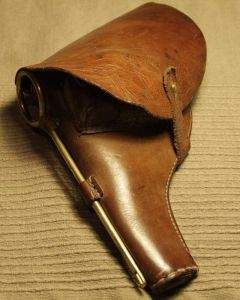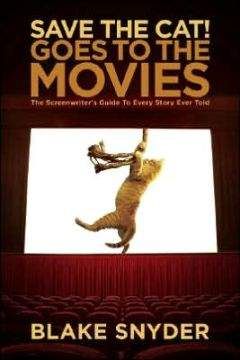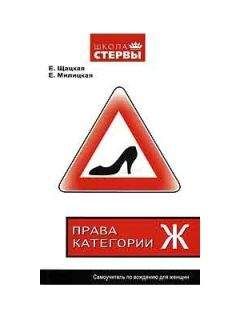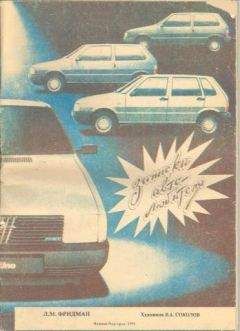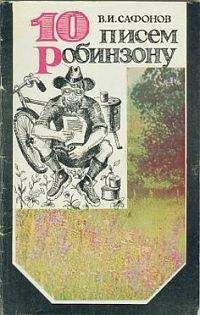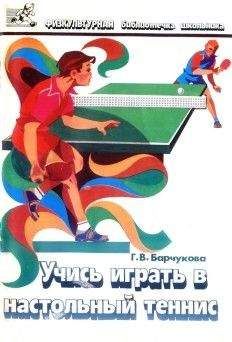Неизвестен Автор - Словарь американских идиом (8000 единиц)
Скачивание начинается... Если скачивание не началось автоматически, пожалуйста нажмите на эту ссылку.
Жалоба
Напишите нам, и мы в срочном порядке примем меры.
Описание книги "Словарь американских идиом (8000 единиц)"
Описание и краткое содержание "Словарь американских идиом (8000 единиц)" читать бесплатно онлайн.
[starch] See: TAKE THE STARCH OUT OF.
[stare in the face] <n. phr.> 1. To be about to meet or to happen to (you.) * /Grandmother became very sick and death was staring her in the face./ * /Defeat stared them in the face, but the soldiers fought on bravely./ 2. To be easy to see; be plain. * /Are you looking for your pencil? It's on your desk, staring you in the face./ * /Their friends all knew that Mary loved John, but John did not see it even though it was staring him in the face./
[stars in one's eyes] <n. phr.> 1. An appearance or feeling of very great happiness or expectation of happiness. * /Mary gets stars in her eyes when she thinks of her boyfriend./ 2. A belief in the possibility of quick and lasting reforms in people and life and an eagerness to make such changes. * /Some inexperienced people get stars in their eyes when they think of improving the world./ - [starry-eyed] <adj.> Very happy and excited, perhaps with little reason; eager and self-confident about improving human nature and general conditions of life. * /Young people are often starry-eyed and eager to improve the world; they do not know how hard it is./
[start] See: BY FITS AND STARTS, HEAD START, JACK-RABBIT START, RUNNING START.
[start from scratch] See: FROM SCRATCH.
[start in] <v.>, <informal> 1. To begin to do something; start. * /Fred started in weeding the garden./ * /The family started in eating supper./ Compare: GO AT. 2. To begin a career. * /Bob started in as an office boy and became president./ 3. To give a first job to. * /The bank started him in as a clerk./
[start out] <v.> 1. To begin to go somewhere. * /Bill started out for school on his bicycle./ * /Art started out on a voyage around the world./ Compare: SET OUT. 2. To begin a career or life. * /Harry started out as an errand boy in a business office./ * /We all start out in life as helpless infants./ Syn.: START IN. 3. <informal> To give one a first job. * /The garage man started Pete out as a grease rack man./ Syn.: START IN(3).
[start something] <v. phr.>, <informal> To make trouble; cause a quarrel or fight. * /John is always starting something./ * /Jack likes to play tricks on the other boys to start something./ Compare: MAKE SOMETHING OF.
[start the ball rolling] See: GET THE BALL ROLLING.
[start up] <v.> 1. To begin operating, * /The driver started up the motor of the car./ * /The engine started up with a roar./ 2. To begin to play (music). * /The conductor waved his baton, and the band started up./ * /The orchestra started up a waltz./ Compare: STRIKE UP. 3. To rise or stand suddenly. * /When he heard the bell, he started up from his chair./
[stash bag] or [stuff bag] <n.>, <slang>, <informal> 1. A small bag containing marijuana cigarettes or the ingredients for making them. * /The police are holding John because they found a stash bag full of the stuff on him./ 2. Any small bag resembling a stash bag used for small personal items such as lipstick, driver's license, etc. * /Do you have any room for my keys in your stash bag?/
[state] See: LIE IN STATE.
[state-of-the-art] <adj. phr.> The best and - the latest any field of research can offer; modem; the latest; the most advanced. * /State-of-the-art personal computers may cost a little more than older models, but may be worth the cost for those who need them./ Compare: UP TO DATE.
[status symbol] <v. phr.> Signs of wealth and prestige. * /A new yacht or airplane might be a status symbol to a bank manager./
[stead] See: STAND IN GOOD STEAD.
[stave off] <v.>, <literary> To keep from touching or hurting you. Syn.: WARD OFF. * /The white knight struck with his sword. The black knight staved it off with his own sword./ * /Bill's warm new coal staved off the cold./ * /They staved off starvation by eating two of the sled dogs./
[stay in] <v. phr.> To remain at home. * /The weather was so bad that we decided to stay in all day./
[stay out] <v. phr.> To stay away from home. * /Her father was very upset because Mary stayed out until 3 A.M. last night./
[stay put] <v. phr.> To stay in place; not leave. * /Harry's father told him to stay put until he came back./ * /The rocks can be glued to the bulletin board to make them stay put./ * /After Grandmother came home from her trip to visit Aunt May, she said she wanted to stay put for a while./
[stay up late] <v. phr.> To not go to bed until very late. * /Peter has to stay up late these days as he is preparing for his comprehensive exams./ See: BURN THE MIDNIGHT OIL.
[stay with] See: STICK WITH.
[steady] See: GO STEADY.
[steak] See: SALISBURY STEAK, T-BONE STEAK.
[steal] See: LOCK THE BARN DOOR AFTER THE HORSE IS STOLEN.
[steal a march on] <v. phr.> To get ahead of someone by doing a thing unnoticed; get an advantage over. * /The army stole a march on the enemy by marching at night and attacking them in the morning./ * /Jack got the job by getting up earlier than Bill. He stole a march on him./ Compare: GET THE JUMP ON, GET THE BETTER OF, TAKE BY SURPRISE.
[steal away] See: SLIP AWAY.
[steal one's thunder] <v. phr.> To do or say something, intentionally or not, that another person has planned to say or do. * /Fred intended to nominate Bill for president, but John got up first and stole Fred's thunder./ * /Mary was going to sing "Oh! Susanna," but Ellen did it first and Mary said Ellen had stolen her thunder./ * /Smith heard that Jones was going to offer a new law which people wanted, so he himself proposed the law first, stealing Jones' thunder./
[steal the show] <v. phr.> To act or do so well in a performance that you get most of the attention and the other performers are unnoticed. * /Mary was in only one scene of the play, but she stole the show from the stars./
[steal the spotlight] <v. phr.> To attract attention away from a person or thing that people should be watching. * /When the maid walked on the stage and tripped over a rug, she stole the spotlight from the leading players./ * /Just as the speaker began, a little dog ran up the aisle, and stole the spotlight from him./
[steal up on] <v. phr.> To stealthily approach one; sneak up on someone. * /The thief stole up on his victim, snatched her purse, and ran away./
[steam] See: LET OFF STEAM or BLOW OFF STEAM, UNDER ONE'S OWN STEAM.
[steamed up] <adj.>, <informal> Excited or angry about or eager to do something. * /The coach gave the team a pep talk before the game, and he got them all steamed up to win the game./ * /When Mary found out that Jane had not kept their secret, she became all steamed up./ * /Bill was all steamed up about the movie he had just seen./
[steel] See: MIND LIKE A STEEL TRAP.
[steer clear of] <v.> 1. To steer a safe distance from; go around without touching. * /A ship steers clear of a rocky shore in stormy weather./ 2. <informal> To stay away from; keep from going near. * /Fred was angry at Bill, and Bill was steering clear of him./ * /Some words Martha always spells wrong. She tries to steer clear of them./
[stem the tide] <v. phr.> To resist; hold back something of great pressure or strength. * /The way to stem the tide of juvenile delinquency is to strengthen education and to pass a stiff gun control law./
[step] See: IN STEP, OUT OF STEP, TAKE STEPS.
[step all over] See: WALK OVER.
[step down] <v.> 1. To come down in one move from a higher position to a lower. * /As soon as the train stopped, the conductor stepped down to help the passengers off./ 2. To make go slower little by little. * /The train was approaching the station, so the engineer stepped it down./ Compare: SLOW DOWN, STEP UP. 3. To leave a job as an official or some other important position. * /When the judge became ill, he had to step down./
[step in] <v.> 1. To go inside for a quick visit. * /It was a cold night, and when the policeman passed, we invited him to step in for a cup of coffee./ 2. To begin to take part in a continuing action or discussion, especially without being asked. * /When the dogs began to fight, John stepped in to stop it before they were hurt./ * /When Bill had done as much as he was able to on his model plane, his father stepped in to help him./
[step inside] <v.> To come or go inside. * /Mother invited the callers to step inside./
[step into] <v.> 1. To come or go into. * /The taxi stopped, and we stepped into it./ * /Mr. Jones called to his secretary to step into his office./ 2. To begin to do, undertake. * /When the star became sick, his understudy stepped into his part./ * /When Bill graduates from college, he will step into a job in his father's bank./
[step into one's shoes] <v. phr.> To do what someone else usually does after he has stopped doing it. * /When Bill's father died, Bill had to step into his father's shoes to support his mother./ * /A coach trains the junior varsity to step into the shoes of the members of the varsity team when they graduate./ * /When the boss retires, his son will step into his shoes./ Compare: IN ONE'S SHOES.
[step off] <v.> 1. To walk or march quickly. * /The drum major lowered his baton and the band stepped off./ 2. or [pace off]. To measure by taking a series of steps in a line. * /The farmer stepped off the edge of the field to see how much fencing he would need./ * /The referee stepped off a five-yard penalty against our team./
[step on it] or [step on the gas] <v. phr.> 1. To push down on the gas pedal to make a car go faster. * /Be very careful when you step on the gas. Don't go too fast./ Compare: GIVE IT THE GUN. 2. <informal> To go faster; hurry. * /Step on it, or we'll be late for school./ * /John is a slow starter, but he can step on the gas when it looks as if he might lose the race./ * /Lee was wasting time at breakfast and his father told him to step on it or they would miss the bus./
[step on one's toes] or [tread on one's toes] <v. phr.> To do something that embarrasses or offends someone else. * /If you break in when other people are talking, you may step on their toes./ * /Mary is pretty, and she often treads on the toes of the girls by stealing their boyfriend./
[step on the gas] See: STEP ON IT.
[step out] <v. phr.> 1. To go out, particularly socially, as on a date. * /Paul said to Sylvia, "You look so dressed up tonight - you must be stepping out, eh?"/ 2. To leave for a short period during the work day to go to the lavatory or to get a cup of coffee. (Frequently said by secretaries over the phone.) * /"May I speak to Mr. Kotz?" Roy asked. "I'm sorry, sir. He just stepped out for a minute," the secretary answered./
[step out on] <v. phr.> To be unfaithful to one's marriage partner or steady lover. * /It is rumored that he has been stepping out on his wife. That's why she's so upset./
[stepped up] <adj.> Carried on at a faster or more active rate; increased. * /To fill the increase in orders, the factory had to operate at a stepped-up rate./
[step up] <v.> 1. To go from a lower to a higher place. * /John stepped up onto the platform and began to speak./ 2. To come towards or near; approach. * /The sergeant called for volunteers and Private Jones stepped up to volunteer./ * /John waited until the teacher had finished speaking to Mary, and then he stepped up./ 3. To go or to make (something) go faster or more actively. * /When John found he was going to be late, he stepped up his pace./ * /After we had reached the outskirts of town, we stepped up the engine./ * /The enemy was near, and the army stepped up its patrols to find them before they got too close./ 4. To rise to a higher or more important position; be promoted. * /This year Mary is secretary of the club, but I am sure she will step up to president next year./ Contrast: STEP DOWN(3).
[sterling character] <n. phr.> A person of irreproachable character; one of the highest professional standards. * /The nominee for the Supreme Court must be a sterling character in every possible way./
[stew in one's own juice] <v. phr.>, <informal> To suffer from something that you have caused to happen yourself. * /John lied to Tom, but Tom found out. Now Tom is making John stew in his own juice./ * /I warned you not to steal those apples. You got caught, and you can stew in your own juice./
[stick] See: CARROT AND STICK, MORE THAN ONE COULD SHAKE A STICK AT.
[stick around] <v.>, <informal> To stay or wait nearby. * /John's father told him to stick around and they would go fishing./ * /After work Mr. Harris stuck around to ride home with his friend./
[stick by one] <v. phr.> To support; remain loyal to. * /All of Peter's friends stuck by him faithfully, in spite of what has been said about him in the press./
[stick in one's craw] or [stuck in one's crop] <v. phr.> To make you angry; bother you; annoy you. * /His parents' praise of his brother stuck in Jerry's craw./ * /Sue's failure to get a better grade than Ann stuck in her crop./
[stick in one's throat] <v. phr.> To be something you do not want to say; be hard to say. * /Jean wanted to ask the teacher's pardon, but the words stuck in her throat./
[stick-in-the-mud] <n.>, <informal> An overcareful person; someone who is old-fashioned and fights change. * /Mabel said her mother was a real stick-in-the-mud to make a rule that she must be home by 10 o'clock on weeknights and 11:30 Saturdays./ * /Mr. Thomas is a stick-in-the-mud who plows with mules; he won't buy a tractor./
[stick one's neck out] or [stick one's chin out] <v. phr.>, <informal> To do something dangerous or risky. * /When I was in trouble, Paul was the only one who would stick his neck out to help me./ * /John is always sticking his chin out by saying something he shouldn't./
[stick one's nose into] See: NOSE INTO.
[stick out] <v.> 1a. To stand out from a wall or other surface; project; extend. * /The limb stuck out from the trunk of the tree./ 1b. To be seen or noticed more easily or quickly than others; be noticeable. * /My house is the only brick one on the street. It sticks out and you can't miss it./ * /Mary plays basketball very well. The others on the team are good, but she really sticks out./ 1c. Often used in the informal phrase stick out like a sore thumb. * /John is so shy and awkward that he sticks out like a sore thumb./ Syn.: STAND OUT. 2. <informal> To keep on doing something until it is done no matter how long, hard, or unpleasant. * /Bill is not a fast runner and he doesn't have a chance of winning the marathon, but he will stick out the race even if he finishes last./ - Often used in the phrase "stick it out". * /Mathematics is hard, but if you stick it out you will understand it./ Compare: HANG ON(2), STICK WITH(1).
[stick out like a sore thumb] <v. phr.> To be conspicuous; be different from the rest. * /When the foreign student was placed in an advanced English grammar class by mistake, it was no wonder that he stuck out like a sore thumb./
[stick together] <v.> To remain close together in a situation. * /Stick together in the cave so that no one gets lost./ * /The gang stuck together after the game./ * /Bill and Bob stick together in a game or in a fight./ Syn.: HANG TOGETHER(1).
Подписывайтесь на наши страницы в социальных сетях.
Будьте в курсе последних книжных новинок, комментируйте, обсуждайте. Мы ждём Вас!
Похожие книги на "Словарь американских идиом (8000 единиц)"
Книги похожие на "Словарь американских идиом (8000 единиц)" читать онлайн или скачать бесплатно полные версии.
Мы рекомендуем Вам зарегистрироваться либо войти на сайт под своим именем.
Отзывы о "Неизвестен Автор - Словарь американских идиом (8000 единиц)"
Отзывы читателей о книге "Словарь американских идиом (8000 единиц)", комментарии и мнения людей о произведении.







